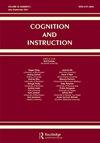Situated Expertise in Literary Interpretation: An Expert-Expert Study of High School and PhD Students Reading Canonical Hip-Hop and Poetry
IF 2.6
1区 心理学
Q2 PSYCHOLOGY, EDUCATIONAL
引用次数: 1
Abstract
Abstract This study brings into conversation two bodies of research that operate from different assumptions and make divergent conclusions about high school students’ capacity to read and respond to literary texts. On one hand, cognitively-oriented expert-novice research comparing experienced literary readers to high school students indicates that students tend not to engage in expert-like interpretive sense-making when they read literature. On the other hand, socioculturally-oriented studies of students’ “funds of knowledge” and socially situated “interpretive communities” indicate that students do engage in expert-like interpretation. One likely reason for these divergent findings is that by default, expert-novice studies often define interpretive expertise by drawing on Western, White discourses and epistemologies. This study experiments with a situated expert-expert methodology that considers the influence of culture, race, and the practices of different interpretive communities on participants’ literary reading and response. First, it offers an expanded definition of interpretive expertise by looking outside conventional academic interpretive communities. Then, the study ascribes interpretive expertise to two groups: Black, Latinx, and Asian-American high school students who self-identified as experts in hip-hop; and mostly White doctoral students who self-identified as experts in poetry. Both groups read lyrics to a highly regarded hip-hop song and a highly regarded poem. Analyses showed that each group was more likely to engage in expert-like practices, such as building symbolic interpretation and appreciating realness, within the genre belonging to their interpretive community. These findings offer empirical support for the power of interpretive communities and the value of funds of knowledge frameworks. The findings strengthen the call for the still predominantly White, Western academy to honor other interpretive communities and recognize the limits of their own.文学解读中的情境专家——高中生和博士生阅读经典嘻哈和诗歌的专家研究
摘要:本研究引入了两种不同的研究体系,它们基于不同的假设,得出了关于高中生阅读和回应文学文本能力的不同结论。一方面,以认知为导向的专家-新手研究将有经验的文学读者与高中生进行比较,表明学生在阅读文学作品时倾向于不进行专家式的解释意义构建。另一方面,以社会文化为导向的对学生“知识储备”和社会情境“解释社区”的研究表明,学生确实从事专家式的解释。这些不同发现的一个可能原因是,默认情况下,专家-新手研究通常通过借鉴西方、白人话语和认识论来定义解释性专业知识。本研究采用了一种专家-专家的方法,考虑了文化、种族和不同解释群体的实践对参与者文学阅读和反应的影响。首先,它通过在传统的学术解释社区之外寻找解释专家提供了一个扩展的定义。然后,该研究将解释专业知识归于两组:黑人、拉丁裔和亚裔美国高中生,他们自认为是嘻哈专家;其中大部分是白人博士生,他们自认为是诗歌专家。两组学生都朗读了一首颇受好评的嘻哈歌曲和一首颇受好评的诗歌的歌词。分析表明,每个群体都更有可能参与专家般的实践,比如在属于他们的解释群体的类型中建立符号解释和欣赏真实性。这些发现为解释社区的力量和知识框架资金的价值提供了实证支持。这些发现加强了对仍然以白人为主的西方学术界的呼吁,即尊重其他解释群体,并认识到自己的局限性。
本文章由计算机程序翻译,如有差异,请以英文原文为准。
求助全文
约1分钟内获得全文
求助全文
来源期刊

Cognition and Instruction
Multiple-
CiteScore
7.90
自引率
12.10%
发文量
22
期刊介绍:
Among education journals, Cognition and Instruction"s distinctive niche is rigorous study of foundational issues concerning the mental, socio-cultural, and mediational processes and conditions of learning and intellectual competence. For these purposes, both “cognition” and “instruction” must be interpreted broadly. The journal preferentially attends to the “how” of learning and intellectual practices. A balance of well-reasoned theory and careful and reflective empirical technique is typical.
 求助内容:
求助内容: 应助结果提醒方式:
应助结果提醒方式:


